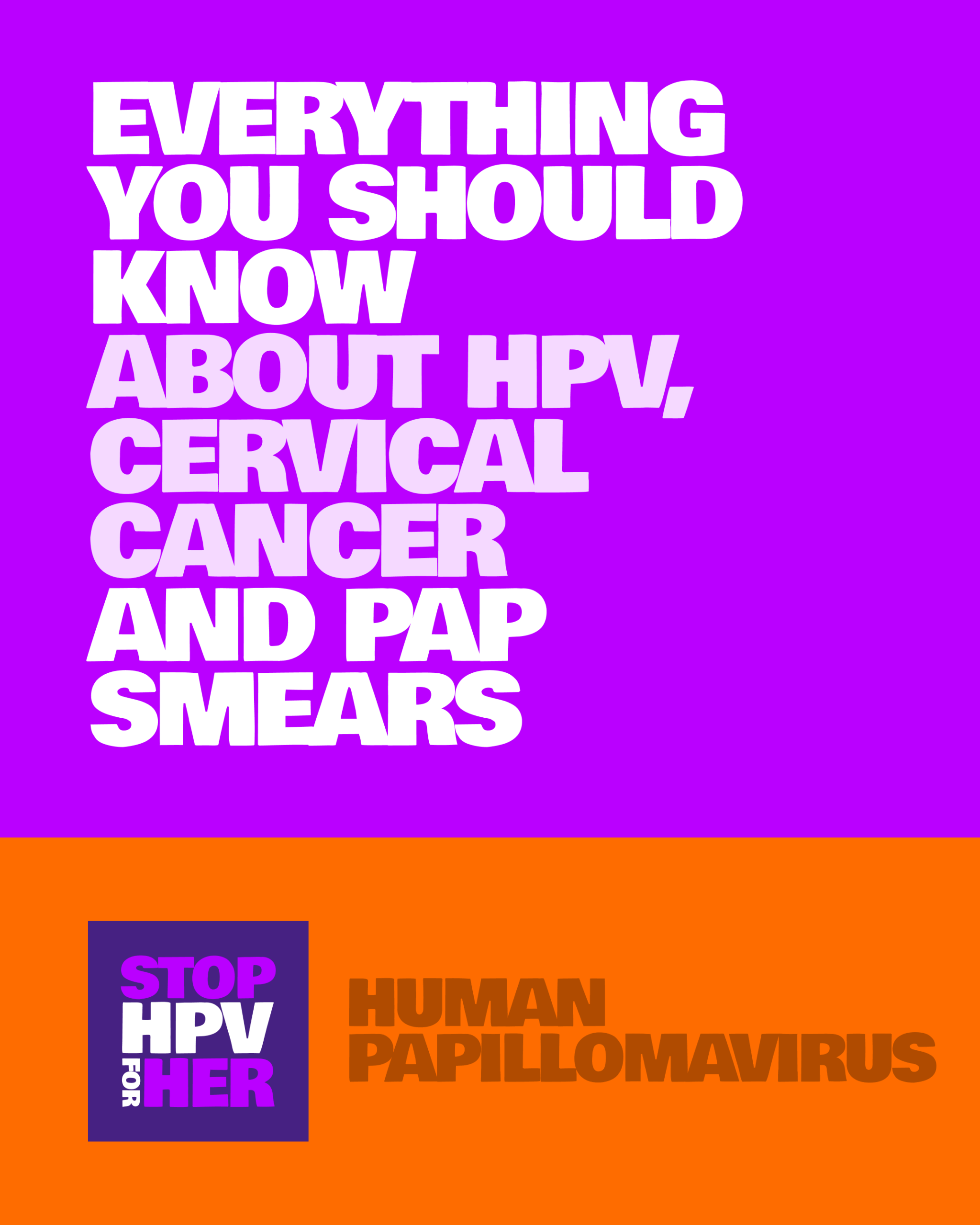Features
#StopHPVForHer: Get Answers to All Your Frequently Asked Questions About HPV, Cervical Cancer & Pap Smears

Did you know cervical cancer is the fourth most common cancer in women worldwide, with Sub-Saharan Africa carrying some of the highest rates? What makes this even more striking is that nearly all cervical cancer cases are preventable through vaccination and regular screening.
HPV (Human Papillomavirus) is at the heart of the conversation. HPV infection is common, it’s silent, and almost everyone will come across it/get infected with it at some point in their lives. Luckily, most people’s immune system will clear it out. But here’s the hopeful part: protection is possible, especially for young girls aged 9–14.
As we create awareness on HPV and cervical cancer, we have designed this FAQ to answer the most important questions for parents, guardians, young girls, teachers, and communities.
Understanding HPV
What is HPV?
Human Papillomavirus (HPV) is one of the most common infections in the world. There are over 200 types. Some of them have a low or high risk of causing cervical cancer. While many types clear up on their own without causing harm, some high-risk types can lead to abnormal changes and then to cervical cancer and other cancers.
Who can get HPV? How does it spread?
Anyone can get HPV. It spreads mainly through skin-to-skin contact, especially during sexual activities. HPV cannot be spread by sharing clothes, towels, or everyday objects.
How common is HPV?
Extremely common. In fact, about 8 in 10 people will be infected with HPV at some point in their lives. The highest rates are found in young adults under 25, but anyone can get it during sexual activity.
What diseases can HPV cause?
HPV can cause genital warts – small skin-coloured, brown or whitish bumps that appear in the genital area. Some HPV types can also cause cancers, including almost all cases of cervical cancer, most vaginal and penile cancers, and some anal, mouth, and throat cancers.
Cervical Cancer Basics
What is cervical cancer?
Cervical cancer develops when high-risk HPV types cause abnormal changes in the cells of the cervix (the lower part of the womb). If these abnormal cells aren’t detected and treated, they can develop into cancer. This process usually takes 15–20 years, which means there’s time for early detection and prevention.
How common is cervical cancer?
Cervical cancer is the fourth most common cancer in women globally, with about 660,000 new cases and 350,000 deaths recorded in 2022. Rates are highest in low- and middle-income countries, especially in Sub-Saharan Africa. In Nigeria, cervical cancer is the second most common cancer after breast cancer. In 2022, cervical cancer accounted for 13,676 cases out of 127,763 new cancer cases.
Unlike most cancers, it tends to affect younger women – most often between ages 35–45. Women living with HIV are six times more likely to develop it.
What are the symptoms of HPV infection and cervical cancer?
Most HPV infections cause no symptoms and clear up naturally within 1–2 years. Sometimes, HPV causes genital warts, which may itch, bleed, or cause mild discomfort.
Cervical cancer develops slowly (over many years) and may not cause symptoms at first. When symptoms do appear, they can include:
- Abnormal Bleeding between periods, after sex, or after menopause
- Foul-smelling vaginal discharge
- Pain in the pelvis, back, or legs
- Swelling in the legs
- Fatigue/feeling tired, weight loss
If you notice these signs, it’s important to see a healthcare provider.
Is it possible to tell if someone has HPV just by looking at them?
No. HPV usually has no visible signs. Only tests can confirm it. The HPV detection test can confirm if you are positive or negative, and it can also tell if you have the low-risk or high-risk type.
Testing and Diagnosis
How can I get tested for HPV and cervical cancer?
There are two key tests:
- HPV DNA Test: Detects the virus that can cause changes to cervical cells.
- Papalonicula Test (Pap smear): Detects abnormal cells that might become cervical cancer.
Cervical cancer testing (screening) should begin at age 25. Those aged 25 to 65 should have a primary HPV test every 5 years. If primary HPV testing is not available, screening may be done with either a co-test that combines an HPV test with a Papanicolaou (Pap) test every 5 years or a Pap test alone every 3 years.
Both tests are quick procedures done in a clinic. They may feel uncomfortable, but should not be in pain.
Prevention
Can HPV infection and cervical cancer be prevented?
Yes. HPV vaccination significantly reduces the risk of infection and protects against the types most likely to cause cancer and genital warts. Screening remains important even if you’re vaccinated, because vaccines don’t cover all HPV types.
Lifestyle choices also help: reducing the number of sexual partners, using barrier protection, and maintaining regular health checks.
Who should get the HPV vaccine?
The World Health Organisation recommends vaccinating girls aged 9–14. Many countries extend vaccination to young women up to age 26, and some also recommend it for boys and young men. The earlier the vaccination, the stronger and longer-lasting the protection will be.
Vaccination: Safety and Effectiveness
Do HPV vaccines have any side effects?
Yes, but they are usually mild and short-lived—such as soreness at the injection site, headache, or a mild fever. These typically resolve within a day or two.
Are HPV vaccines safe and effective?
Absolutely. HPV vaccines undergo rigorous safety testing and continuous monitoring. They are over 95% effective at preventing infection from the most dangerous HPV types.
Can I get HPV from the vaccine?
No. The vaccine is non-infectious and cannot cause HPV.
Can I get the vaccine if I’m already sexually active?
Yes. Even if you’ve been exposed to one HPV type, the vaccine can still protect you against others.
Does HPV vaccination trigger menstruation in young girls?
No. Menstruation would begin naturally, with or without the vaccine.
Is the HPV vaccine safe for females with HIV?
Yes, and it’s strongly recommended. Girls and women living with HIV are at much higher risk of HPV-related cancers, so the vaccine is especially important.
How long does protection last? Will I need a booster?
Current evidence shows strong, long-lasting protection. People vaccinated since 2006 still show immunity, and no booster is recommended at this time.
Clarifications and Misconceptions
Are HPV and HIV the same?
No. They are different viruses and they affect the body differently. HIV weakens the immune system, while HPV mainly affects skin and lining of organs such as the cervix. Certain HPV types can lead to cancer.
*** This post has been medically reviewed by Sebeccly Cancer Care























